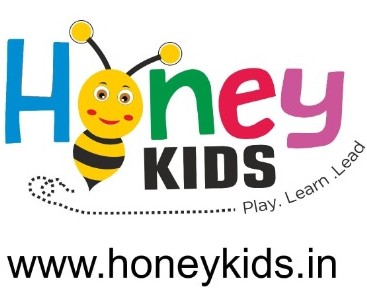Top 5 Play School Programs That Boost Learning Fun
Introduction
Selecting the right play school program for your child can feel like an overwhelming task. With so many options available, how do you know which one will best enhance your little one’s learning while ensuring they have fun? Play-based learning is critical during these formative years, and engaging programs can spark creativity, foster social skills, and build a love for education. In this article, we will explore five exemplary play school programs that strike the perfect balance between learning and play. This guide aims to help you make an informed decision that supports your child’s growth in a joyful environment.
1. Montessori Method
What It Is
The Montessori Method is an educational approach developed by Dr. Maria Montessori, emphasizing independence, hands-on learning, and respect for a child’s natural development. Children are encouraged to explore and learn at their own pace, guided by trained educators who observe rather than direct.
Key Features
-
Individualized Learning: Each child progresses according to their unique interests and abilities.
-
Hands-On Materials: Learning tools and activities focus on sensory experiences, promoting exploration and discovery.
-
Mixed-Aged Classrooms: Children of different ages learn together, fostering mentorship and cooperation.
“The goal of Montessori education is not to prepare a child for school, but to prepare the child for life.” – Dr. Maria Montessori
2. Reggio Emilia Approach
Overview
Originating in Italy, the Reggio Emilia approach prioritizes expressive arts, community involvement, and a child’s innate curiosity. It views children as capable individuals who possess the right to express themselves and actively participate in their learning journey.
Highlights
-
Project-Based Learning: Children engage in long-term projects that allow them to explore and investigate topics of their interest.
-
Documentation of Learning: Teachers and parents collaborate to document children’s learning processes, fostering reflection and growth.
-
Focus on Family and Community: Parents are considered essential partners in their child’s education, promoting a sense of community.
3. Waldorf Education
Understanding Waldorf
Developed by Rudolf Steiner, Waldorf education nurtures a child’s imagination while providing a well-rounded curriculum that addresses artistic, academic, and social development. The approach is rooted in a deep appreciation for rhythms and seasons.
Essential Aspects
-
Artistic Integration: Daily activities incorporate music, rhythm, and creative arts, promoting holistic development.
-
Nature Curriculum: Learning often takes place outdoors, encouraging children to develop a connection with the natural world.
-
Storytelling: Lessons frequently include storytelling, fostering imagination and creating memorable connections to learning.
Personal Touch
In my experience, witnessing children engaged in nature and artistic activities in Waldorf settings brings smiles and endless creativity to their faces. These experiences are invaluable for emotional and cognitive development.
4. HighScope Preschool Curriculum
What Makes it Special
HighScope is a research-based educational approach that focuses on active participatory learning, where children have the freedom to choose their activities. It is grounded in the belief that children learn best through play.
Key Elements
-
Plan-Do-Review Process: This framework allows children to plan their activities, carry them out, and reflect on what they learned, enhancing decision-making and critical thinking skills.
-
Structured Environment: Classrooms are organized with clear areas for different types of play, encouraging exploration and independence.
-
Parent Involvement: HighScope emphasizes the importance of partnership between educators and families, engaging parents in their children’s learning.
5. Creative Curriculum
What It Entails
The Creative Curriculum focuses on a comprehensive approach to child development, addressing social-emotional, physical, and cognitive growth through a rich blend of learning experiences.
Notable Characteristics
-
Play-Based Learning: Activities are designed to engage children in play, fostering an environment of exploration and creativity.
-
Learning Stations: Classrooms are equipped with various centers promoting different skills, from arts and crafts to literacy activities.
-
Culturally Relevant Content: The curriculum is designed to reflect the diversity and cultural backgrounds of the children, ensuring inclusivity and representation.
“Play is the highest form of research.” – Albert Einstein
Conclusion
In conclusion, choosing the right play school program can significantly enhance your child’s early learning experiences, setting the stage for future academic success. Whether you lean towards Montessori’s independence, Reggio Emilia’s creativity, Waldorf’s artistic integration, HighScope’s active learning, or the Creative Curriculum’s comprehensive approach, each of these programs values play as a fundamental component of learning.
Take the time to explore each option, visit local schools, and engage with educators. Your child’s educational journey begins here, and making an informed choice will ensure they have not only a solid foundation but also a meaningful, joyful experience as they grow and learn.
Call to Action: Did you have experiences with any of these play school programs? Share your thoughts in the comments below or start a conversation to learn more about your community’s offerings!

Comments are closed